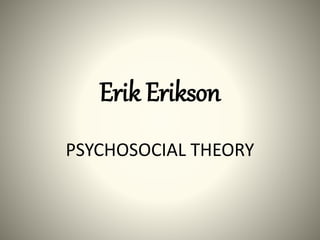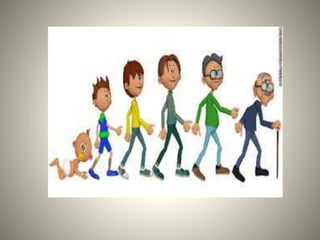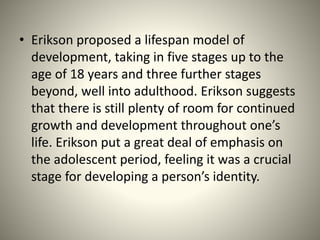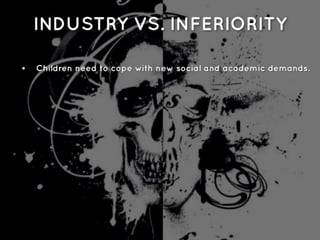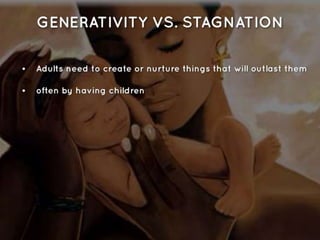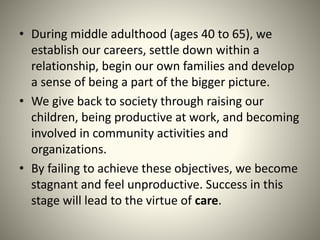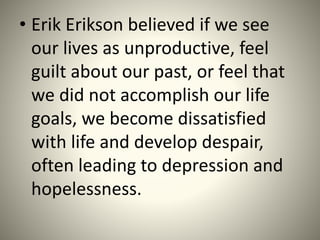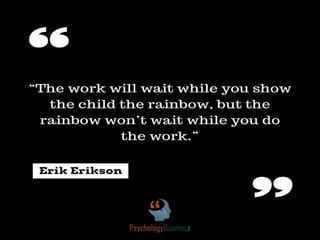Erik Erikson proposed a lifespan theory of psychosocial development consisting of eight stages from infancy to late adulthood. Each stage presents a psychosocial crisis that influences personality development. For example, adolescence involves developing identity through exploring different roles and committing to an occupation. Successful completion of each stage leads to a healthy personality and the acquisition of basic virtues like trust and identity.
